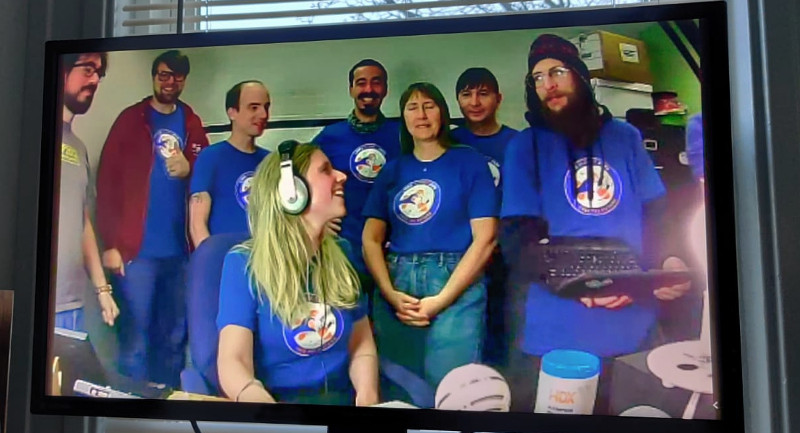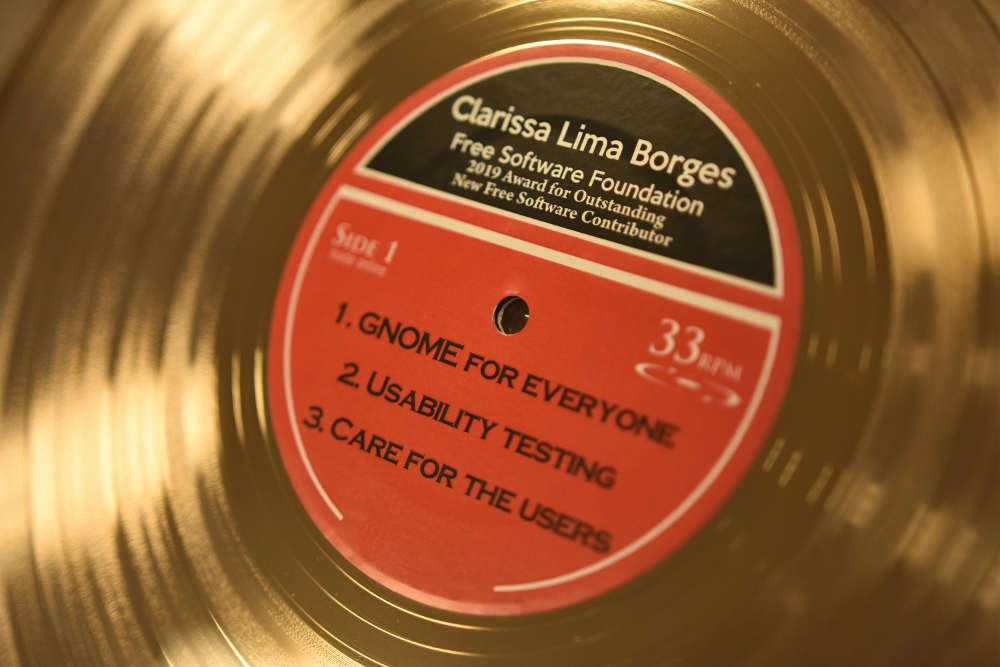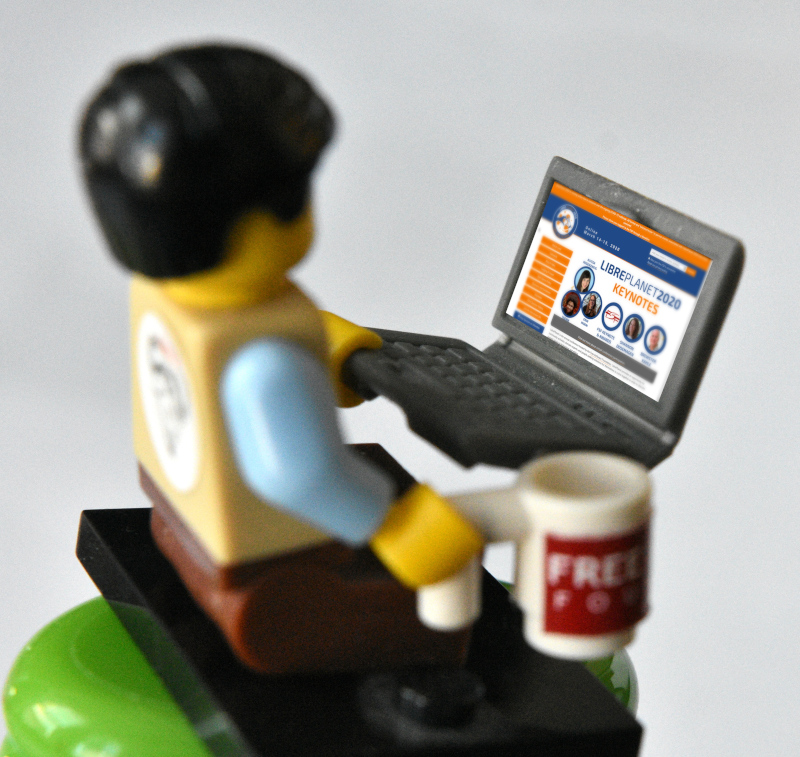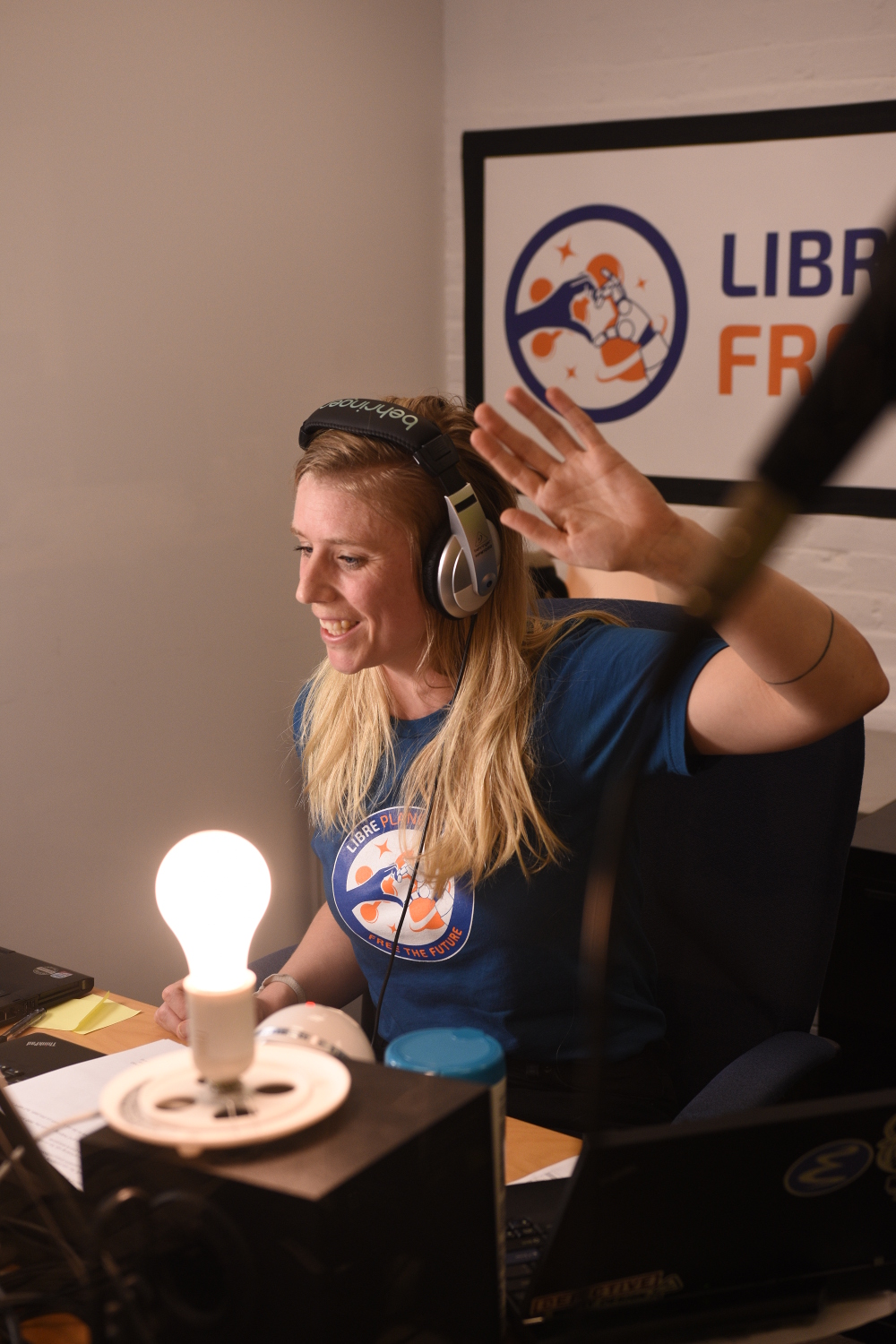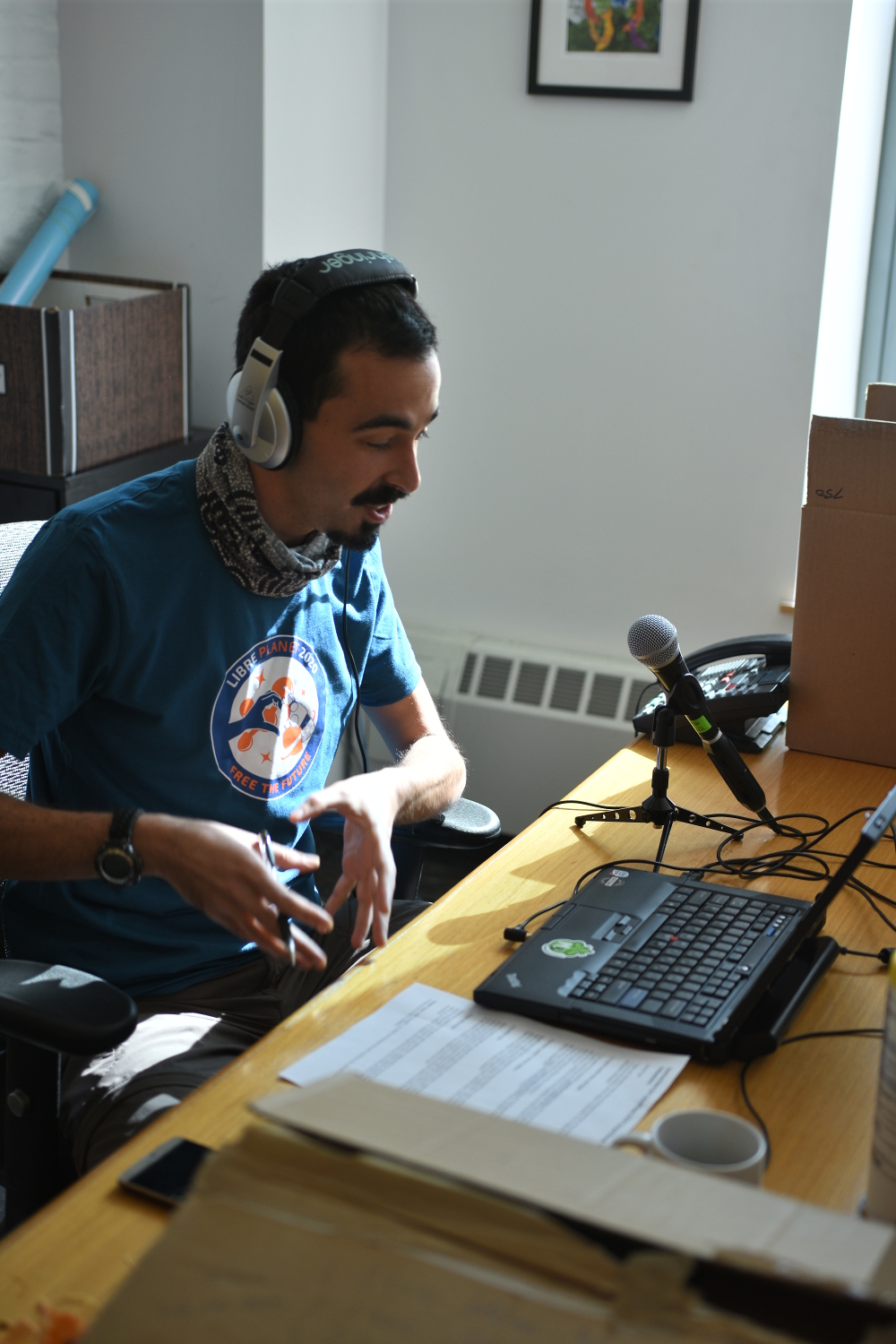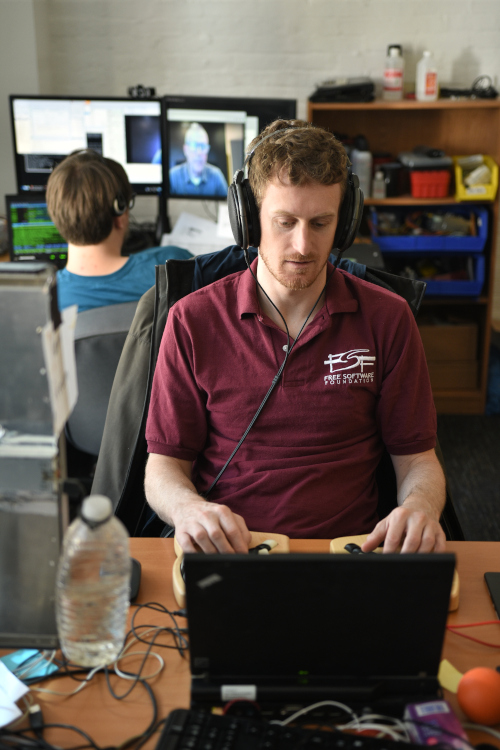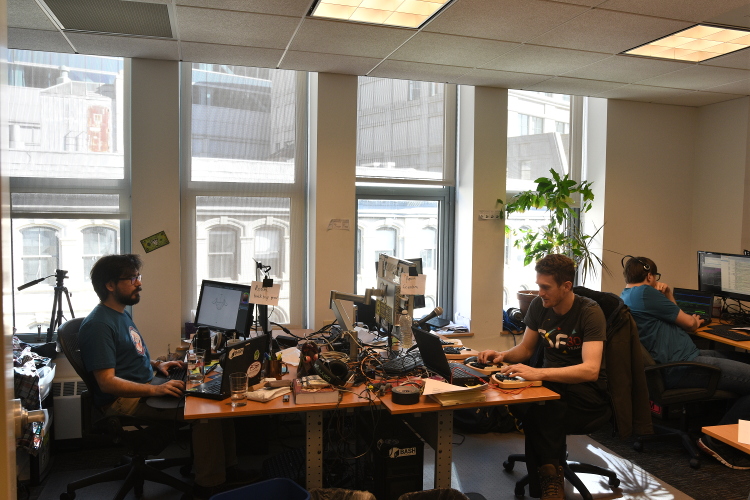
Sometimes, all of your best-laid plans can go awry, and when COVID-19
collided with LibrePlanet 2020, the Free Software Foundation
(FSF) staff and management had to make an incredibly tough decision:
how were we to weigh the risk of a spreading pandemic against our most
important yearly event? Within the space of a week, we had to change
course from months of scrupulous planning and figure out how to ensure
that our carefully-composed program could move forward, giving the
worldwide free software community access to the experts, creators, and
enthusiasts we had planned to bring together in Boston. We were
incredibly excited to present this slate of free software luminaries
and newcomers, all eager to discuss what it will take to "Free the
Future," and we weren't about to let all of that effort go to waste.
Thankfully, free software activists aren't afraid of a little
adversity, and are accustomed to taking on challenges. In only a few
days, we fully shifted gears to deliver the LibrePlanet 2020
program remotely, with online talks streaming in from all over the
world. We're so grateful to our speakers, who have been so flexible,
and to the last-minute benefactors that volunteered to help fill any
gaps that might ensue. All this allowed us to present you with a
nearly full program for the event!
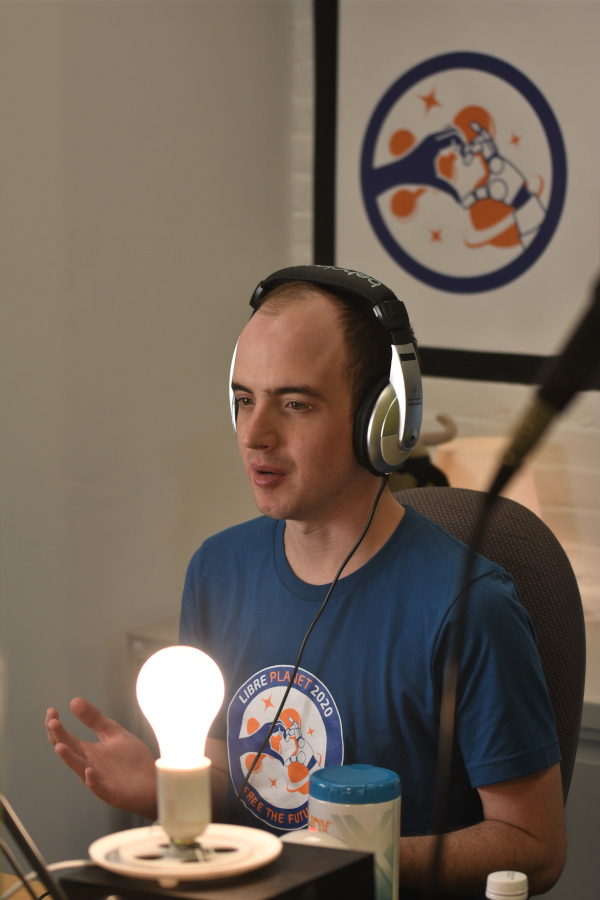
Usually the FSF office is packed to the seams with visitors from all
over the world during our Friday night open house and our Saturday
night hack night. While we had to discourage all visitors and
volunteers from coming due to the COVID-19 risk, the office was still
bustling all day, since it served as the home base for our online
conference operation. Our intrepid copyright and licensing associate
Craig Topham made a deep clean of the "pirate room," and the tech
team worked practically overnight on our fully free streaming setup
for 2020. The conference was brought to viewers around the world
using entirely free software: our local Jitsi instance,
Gstreamer and Icecast.
Today's program kicked off with a panel calculated to line up
perfectly with the conference theme: the "Free the Future" keynote
panel featured a group of talented hackers in their teens and early
twenties, interviewed by FSF campaigns manager Greg Farough. Speakers
Alyssa Rosenzweig, Taowa, and Erin Moon each shared stories of how
they discovered free software, and shared insights they feel are
essential to the future of the free software movement.
Alyssa, who interned at the FSF in 2018, spoke eloquently about
how important it is for our community to come together: "We cannot let
fear of future dystopia drive us, quibbling over semantics of our fear
and burning out by the fires we chase, but rather must unite in
constructive optimism propelling us to free the future." She added,
"Optimism is also critical for we free software activists. We need to
empathize and support each other as a community, not demonize
imperfections. Measured against our dream utopia, none of us are
perfect. Judging others is emotional mutiny to the movement. Judging
ourselves, however, is a one-way ticket to activist burnout. But if we
focus on the constructive love of freedom instead of the destructive
forces we fight, our movement becomes sustainable..."
The morning's conversation turned on a variety of topics, including
free software community building, mobile phone freedom, and the unique
role decentralized (or "federated") social media plays when it comes
to bringing users freedom. Taowa shared his experiences as a
non-uploading Debian Developer, discussing the challenges of
organizing Debian's own conference, DebConf. Erin, who came to
free software by way of her work in digital signal processing, had
special insights to share on how free software is poised to being
people freedom on the Web.
The first morning session started on an creative note with a lesson in
"Digital painting with Krita on GNU/Linux: Cute creature concept art"
from French cartoonist David Revoy, whose Web comic Pepper&Carrot is
created with an entirely free workflow. Revoy demonstrated the
capabilities of the free software painting program Krita to draw
two adorable GNU from start to finish. Other sessions were a
presentation by journalist Lucy Ingham called "Rented future: The
dangerous rise of life as a service," and an expert overview of free
software in the US government by Karen Johnson and Fen Labalme.
In the next session, online viewers chose between learning about
encryption with engineer DeeDee Lavinder, about free software
community building in the US versus China with artist and programmer
Giselle Jhunjhnuwala, and methods for educating students about the
importance of ethical software with William Liggett. DeeDee gave
viewers a crash course into the "huge topic" of encryption, which
touches the lives of every software user, providing technical and
non-technical users alike with a conceptual overview of free software
encryption technology and its importance.
After a brief lunch break, sessions resumed with more lessons about
free software communities from developer advocate JJ Asghar, a visit
to the fascinating world of typography with Felipe Sanches, and a
passionate motivation for broader use of free software from local high
school student Ben O'Neill, who correctly points out that free
software provides a far more environmentally sustainable model for
computing than the "planned obsolescence" model embraced by most
proprietary manufacturers.
The next time slot lined up a choice of interesting questions for
online participants: would you prefer to learn about how copyleft can
be used to disrupt the "smart device" dystopia from former FSF
executive director Bradley Kuhn. Or, would you prefer to find out how
free software can improve the future of farming, with a dynamic panel
from the Gathering for Open Ag Tech (goatech.org)? Or, would you
prefer a freewheeling metaphor comparing bicycles and free software,
from perennial LibrePlanet speaker Wm "Salt" Hale? (Luckily, if you
were having trouble deciding, you don't have to miss out on any of
these -- videos of all of these talks will be available at the
LibrePlanet video library).
Talks in the next session got down to practical nuts and bolts: where
is free software being used in real life, and by whom? Robb Ebright
explained how his community radio station uses LibreTime, an
AGPLv3-licensed radio automation system, while Paul Gazillo and Joshua
Santana explained how free software provides the best tools to enable
free scientific inquiry, and Camille Akmut presented their study of
exactly how diverse free software projects are (and aren't). All in
all, it was an engaging look into the practical "future" of free
software: both in terms of how we can welcome an ever-changing
userbase into the community, as well as how free software can be used
to transmit other kinds of messages out to the world.
The last multi-talk slot of the day included LibrePlanet 2019 keynote
Micky Metts digging deeper into her thoughts on how we can control our
own data, Document Foundation co-founder Italo Vignoli taking a look
back at ten years in the life of LibreOffice. Micky painted a somewhat
frightening picture about the future surveillance capitalism is
creating for us -- and what we can and must do to stop it. On the
other hand, Italo gave an overview of the successes the LibreOffice
project has seen in such a short time, becoming a free software
writing and presentation suite used by millions around the world.
Finally, the day ended with a keynote by FSF executive director John
Sullivan, including the bestowal of the 2019 Free Software Awards. The
winners had already been notified in advance (under ordinary
circumstances, they would have been present and would each be giving a
talk on Sunday). This gave the FSF the opportunity
to praise the accomplishments of the three winners: longtime free
software contributor and author Jim Meyering, talented newbie Clarissa
Lima Borges, and the Let's Encrypt project. Each winner chose the
person who would present them with the award. In fact, reaching out to
the community is something we plan to do even more as we move forward
with LibrePlanet 2021.
In his keynote address following the award presentation ceremony,
Sullivan announced the beginning of a new working group on free
software communication technology. True to the conference's mission to
"free the future," this working group will combine the free software
acumen of the FSF with experts working in the related fields.
Together, the working group will identify and publicly document the
most pressing issues facing the freedom of person-to-person
communication, with the goal of having ethical solutions to virtual
events, online education, and workplace collaboration. In a situation
like the present COVID-19 pandemic, these are precisely the tools that
we need.
This year's volunteering tasks were very different but no less
essential than in the past, and we're so grateful for all of the
volunteers helping out and taking the time to keep our IRC channels
peaceful and orderly. We're also grateful for raffle donors
Technoethical, Vikings, JMP, No Starch Press, and ThinkPenguin. Since
we weren't able to organize an online raffle, we're scheming some fun
ways to parcel out these goodies, so keep an eye on fsf.org for future
announcements!
Join us for the second day of LibrePlanet 2020, streaming live to you
tomorrow at 09:30 EDT!
